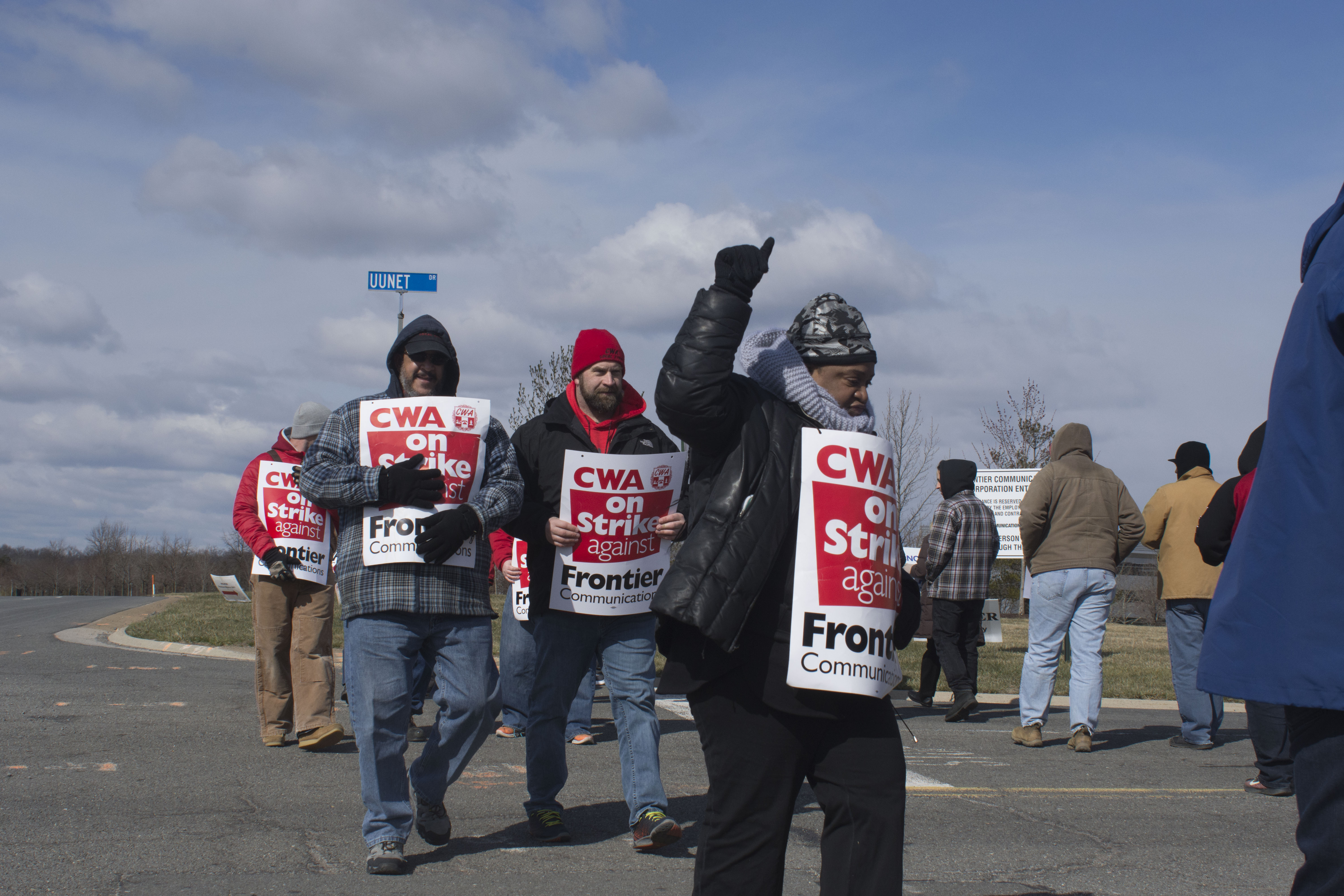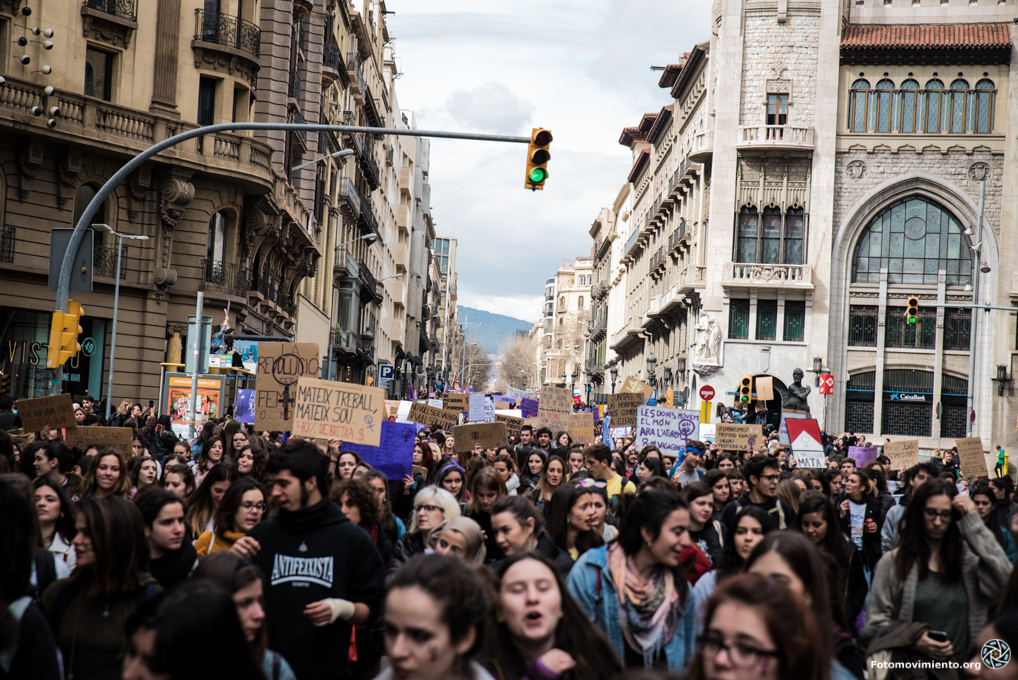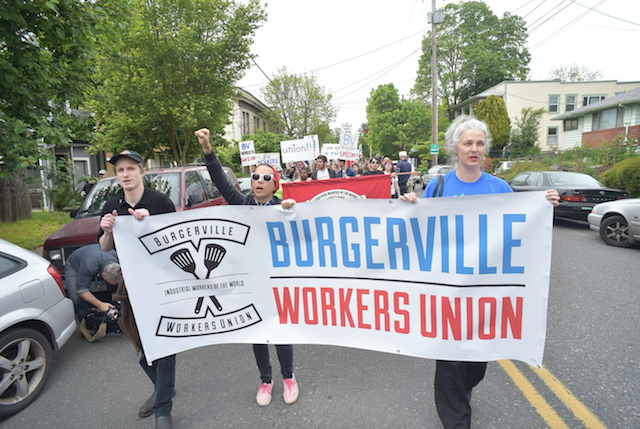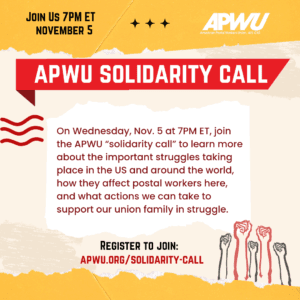May 1, 2018
Labor News
(This article first appeared in the May-June 2018 issue of The American Postal Worker magazine)
Portuguese Postal Workers Hold One-Day Strike
Over 4,000 Walk Out to Demand Reversal of Privatization
Over 4,000 Portuguese postal workers held a one-day strike in Lisbon on Feb. 23, demanding a reversal of the country’s privatized postal services.
Members of the four different unions representing postal workers employed by the now privatized CTT – Correios, Telégrafos e Telefones or Post, Telegraph and Telephone – traveled from across the country to “fight so that the post office will once again be public [and] universal,” according to a press release by the National Syndicate of Mail and Telecommunications Workers (SNTCT). More than 70 percent of workers joined the strike.
In September 2014, in order to comply with the newly-formed European Union requirements for its bailout, the Portuguese government sold all the public shares of CTT, making it a private company.
As part of its privatization plan, the company announced that it will lay off 800 workers and close nearly 60 post offices this year. Workers also went on strike Dec. 21-22, 2017 over these issues.
On March 9, postal workers wrote up a resolution calling for a public postal service. The unionists then hand-delivered it to the Prime Minister at his residence.
In the resolution, postal workers charge that mail is only being delivered every two or three days – sometimes only once a week. In addition, CTT hired non-union workers “without [collective bargaining] rights, with very low training” to deliver and sort mail.
“CTT is the company that has an obligation to provide [quality] postal service nationwide. They’re not doing it!” SNTCT wrote in the resolution. “There is an urgent need to halt the degradation of CTT as a key company for the economy… and service to the people.”
Cornelia Broos, Head of UNI Post and Logistics, said, “UNI stands in solidarity with the striking workers in Portugal and supports their demands to renationalize the post. We believe that all people should have quality, universal postal service, and privatization puts shareholders and profits ahead of investment in services.”
UNI Global Union is an international union association representing more than 20 million workers from over 900 trade unions around the world, including the APWU.
CWA Workers Win Contract After Three-Week Strike

Photo courtesy of CWA
After a three-week strike, 1,400 workers in the state of West Virginia and also in Ashburn, VA, reached a tentative contract agreement with Frontier Communication and returned to work March 28. The workers (primarily technicians and customer service representatives) are represented by the Communications Workers of America (CWA).
Their contract, originally set to expire Aug. 5, 2017, was then extended to Nov. 4, and again extended until March 3, 2018. With no fair agreement on the horizon, workers walked off the job March 4 and picketed in front of 47 retail locations.
On March 8, the national CWA set up a Striking Families Solidarity Fund. Strikers immediately received an outpouring of community support with hundreds joining the picket lines, culminating with a large rally in Charleston, WV on March 24.
Workers said the strike was not over wages or benefits, but about good jobs and service.
Local 2006 President Ann Vogler explained in a statement, “We are happy to have an agreement that gives job security to 100 percent of the bargaining unit… The community outreach and support from the other unions has been wonderful.”
“I could not be more proud of our members,” said Ed Mooney, Vice President of CWA District 2-13 in a press release. “Going on strike is never easy. But they knew what was at stake for their co-workers and for their communities.
Thanks to their strength and unity, our bargaining team has reached an agreement with Frontier that will ensure that they will continue to have good, family supporting jobs.”
As this issue goes to press, CWA members were being briefed on the agreement and plan to hold a vote in late April.

Photo courtesy of Fotomovimiento Flickr/Creative Commons
Five Million Spanish Women Strike on International Working Women’s Day
On March 8, International Working Women’s Day, over 5.3 million Spanish women walked off the job for a one-day strike. The strike was organized by the grassroots group, The March 8 Commission, and was supported by the country’s trade unions, as well as the mayors of Madrid and Barcelona.
In what organizers called a “feminist strike,” it aimed to bridge the inequality gap between men and women and to stop the growing sexual violence against women in the country. In Spain, the gender pay gap is 19 percent for private sector workers and 13 percent for public sector workers, according to data from the European Union’s statistical provider, Eurostat.
“Our identity is multiple, we are diverse,” wrote strike organizers in a manifesto. “Today we claim a society free of oppression, exploitation and sexist violence… We do not accept worse working conditions, nor being paid less than men for the same work.”
Wearing purple and chanting, “When we stop, the world stops!” women and supporters took to the streets of Madrid, Barcelona, Bilbao, Valencia and 200 other locations. Traffic was blocked in Madrid and Barcelona and protestors clogged railway lines in Catalonia. Students and protestors picketed universities and many female journalists did not go into newsrooms or studios.
Ana Reyes, a 37-year-old PR executive, told Agence France-Presse she was striking “in the hope that the importance of half of the population will be recognized and that it will bring about a real change.”
Wearing a purple scarf and marching with her mother, Indira Bravo, 9, told CNN she was protesting “so when I am older, everyone is the same.”
Burgerville Workers Union Poised to Become First Fast Food Bargaining Unit

during their first action in 2016.
As this issue went to press, members of the Burgerville Workers Union (BVWU) Store #41, located in Southeast Portland, OR, were holding a vote to become the first fast food workers bargaining unit in the country.
Mark Medina, a union representative, told Eater PDX that he and the rest of the union are confident they will have a majority of union “yes” votes on April 22 and 23. If enough members vote “yes,” the National Labor Relations Board will officially recognize workers as Branch #41 of the BVWU. Members of the BVWU will have an opportunity to sit at the bargaining table with Vancouver-based Burgerville and negotiate wages, benefits and working conditions. Medina hopes other locations will follow suit.
BVWU is affiliated with the Portland general membership branch of the International Workers of the World. For the past two years, workers have been picketing the restaurant chain and campaigning for the right to organize, a $5/hour raise, and dignity and respect in the workplace.
“More and more workers are choosing to fight,” BVWU members said in a press release. “We are inspired by garment workers in Cam- bodia, factory workers in China and our fellow fast food workers across the United States. Workers across the world are standing up and demanding better lives and winning respect.”
Medina added, “I’m excited that history is going to be made because some scrappy workers got together and were the forefront of their own movement. Poverty wages are awful. They are not good for people, not good for the community or for the economy and it’s high time we end this practice.”
For updates, visit www.burgervilleworkersunion.org.
Campaign Workers Guild Organizes First Bargaining Unit
For the first time ever, political campaign workers organized a union.
The Campaign Workers Guild (CWG) represents non-management workers on both electoral and issue-based campaigns. The first bargaining unit was certified in late 2017 with congressional candidate Randy Bryce’s campaign in Wisconsin. As this issue went to press, eight other units have formed, including the first gubernatorial campaign, Democratic-Farmer-Labor candidate Erin Murphy in Minnesota.
According to CWG, campaign workers frequently work close to 80 hours a week, get paid far less than $15 an hour, often receive no health benefits, and can face sexual harassment and hostile working conditions.
“Working from one election cycle to the next should not mean working from paycheck to paycheck,” said CWG’s mission statement. “It shouldn’t mean having to put up with unsafe housing and abusive bosses. And it should never mean staying silent about sexual harassment or racism out of fear of being blacklisted.”
Campaign work is unique. Workers are usually guaranteed a job for only a few months at a time. Since elections do not happen year-round in any given area, campaign workers are always moving. This makes organizing a union difficult.
Those who have worked on any electoral campaign or ballot initiative – even if they are not currently – are eligible to join CWG. Members can work in any department – digital, data, communications, operations, political, etc.
CWG is encouraging campaign workers to organize their units and has resources available on their website, campaignworkersguild.org.



